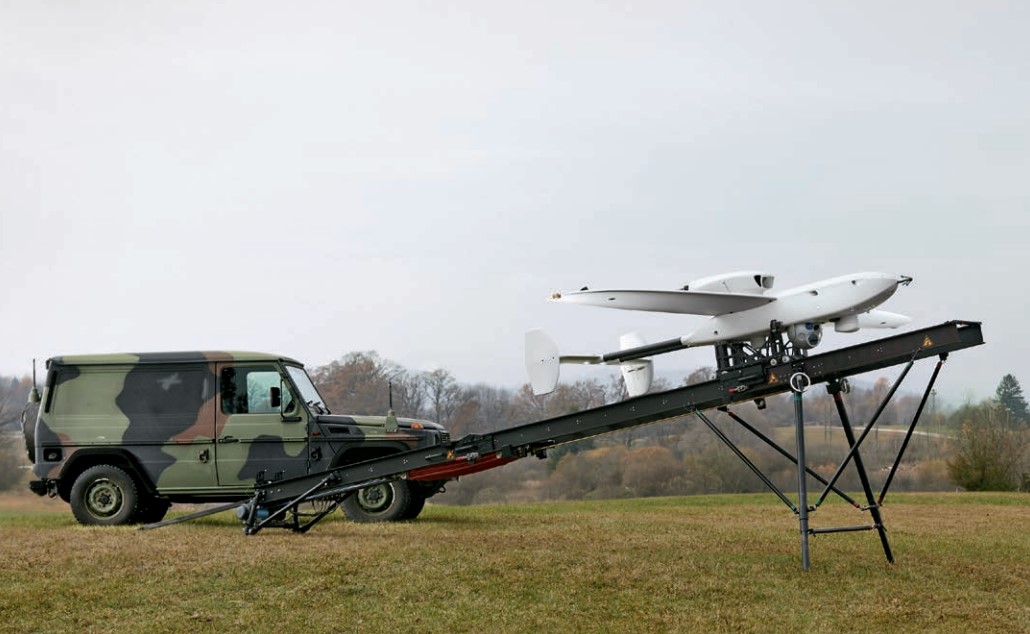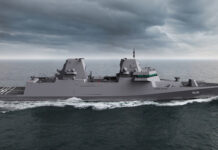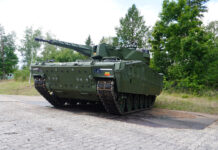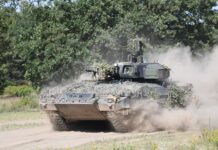Germany’s Bundeswehr has ordered 13 LUNA NG tactical unmanned aerial systems (UASs) from Rheinmetall in a contract worth more than EUR 200 M, the German company announced on 28 September 2023.
The order includes one ‘pilot’ system and 12 production systems, with the first of the latter to be delivered in 2025. Each LUNA NG system consists of five unmanned aerial vehicles, two ground control systems, two launcher vehicles, two antenna masts, a repair shop and three transport platforms.
The contract, signed on 28 September by the president of Germany’s Federal Office for Bundeswehr Equipment, Information Technology and In-Service Support (BAAINBw), Annette Lehnigk-Emden, is, in fact, an amendment to an previous contract, given that the original manufacturer of the LUNA NG system, EMT, went into self-administered insolvency in December 2020. Rheinmetall announced that it was taking over the company’s activities in November 2021: a process that was concluded in 2022.
‘LUNA NG’ is a German acronym standing for ‘Air-supported Unmanned Short-range Reconnaissance Equipment, Next Generation’, but in Bundeswehr service the system will be known as HUSAR: a German acronym standing for ‘High-Efficiency Unmanned System for Medium-Range Reconnaissance’.

The LUNA NG air vehicle, which has a wingspan of 5.34 m, is powered by a heavy-fuel Wankel rotary engine and has a maximum take-off weight of 110 kg (including a payload capacity of more than 30 kg). It has a service ceiling of 5,000 m, a typical reconnaissance speed of 90 km/h and, depending on its payload, has an endurance of around 12 hours.
While the current LUNA NG air vehicle is launched by catapult and recovered by net or parachute, future options will include an add-on vertical take-off and landing (VTOL) kit.





![Bundeswehr’s Luchs 2 reconnaissance vehicle: Rheinmetall receives orders for CT-025 medium-calibre turret [Photo Rheinmetall]](https://euro-sd.com/wp-content/uploads/2026/02/rm-hhk-news-218x150.jpg)
![Rheinmetall at Enforce Tac 2026: Effectiveness, cover, interconnection, mobility [Photo: Rheinmetall]](https://euro-sd.com/wp-content/uploads/2026/02/JAGM-Fuchs-b_Rheinmetall-Kopie-218x150.jpg)
![Rheinmetall signs framework contract with Dutch army for production of hand grenades Under a new multi-year framework contract with Rheinmetall the Royal Netherlands Army will be able to procure different types of hand grenades flexibly and in line with its requirements throughout the entire term of the contract. [Rheinmetall]](https://euro-sd.com/wp-content/uploads/2026/02/Hand-grenades-Rheinmetall-Kopie-218x150.jpg)


![The role of logistics in the Bundeswehr: A foundation for the planning and conduct of operations [Bundeswehr]](https://euro-sd.com/wp-content/uploads/2026/01/Bundeswehr-1-Kopie-218x150.jpg)


